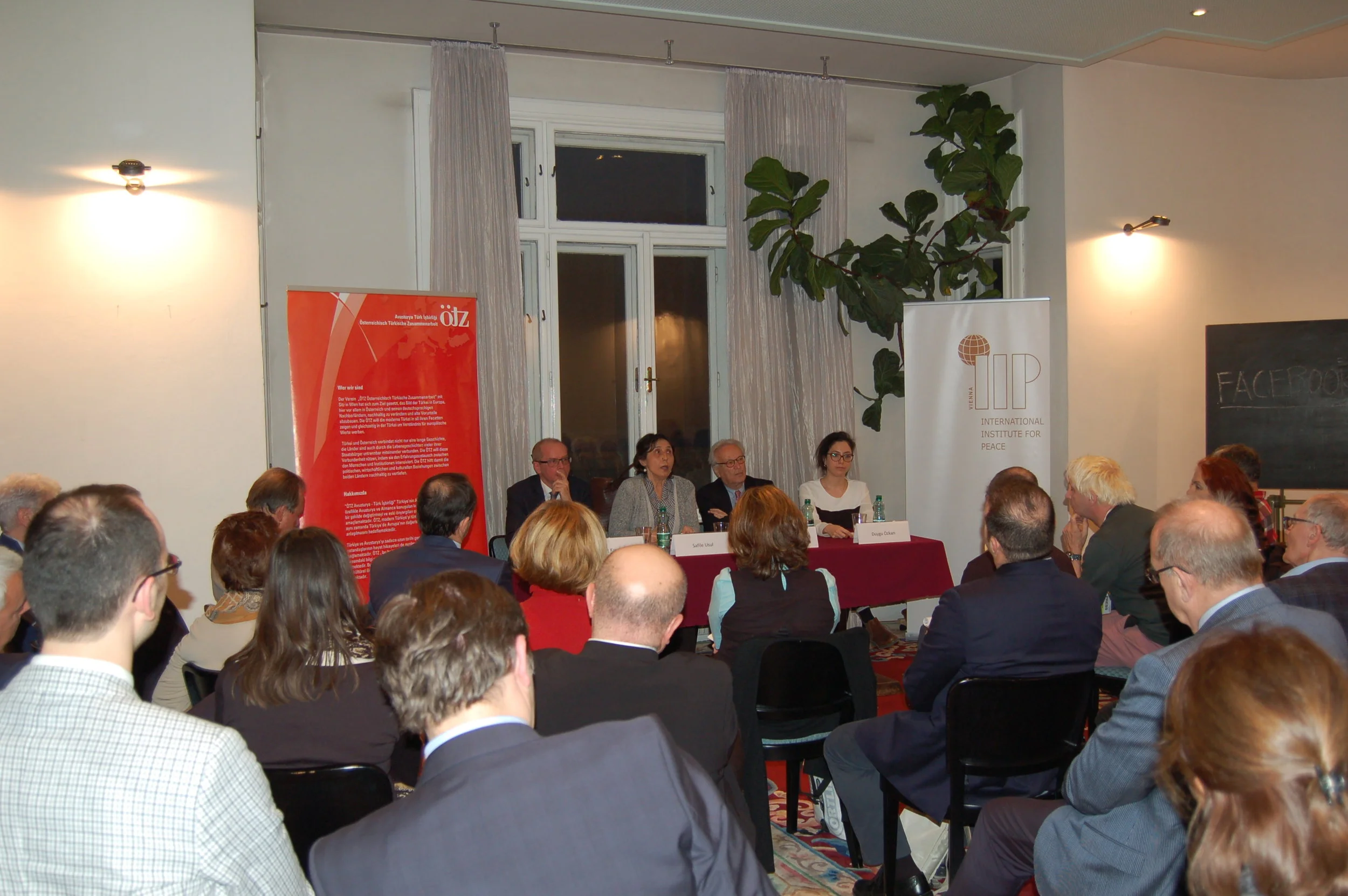Am 24. 4. fand am International Institute for Peace (IIP) ein Treffen des Strategie- und Sicherheitspolitischen Beirates (SSB) der Wissenschaftskommission des Österreichischen Bundesheeres statt. Das Thema war die „Europäische Sicherheit vor und nach dem BREXIT“; es fand gerade nach der ersten Runde der französischen Präsidentschaftswahlen und vor den angekündigten Parlamentswahlen in Großbritannien statt.
Dialogue with Mrs. Talya Lador-Fresher, Ambassador of Israel to Austria
On Wednesday, the 18th of April 2017, an informal exchange with Mrs. Talya Lador-Fresher - ambassador of Israel to Austria and the International Organisations - and Austrian journalists, professors, former politicians and other experts took place at the International Institute for Peace (IIP) in Vienna. The overall topic of the discussion has been The Role of Israel in the MENA Region and in the New World.
The Future of the Iran Nuclear Deal in the New World
While the Joint Comprehensive Plan of Action (JCPOA) raised hope to be the beginning of an integration of Iran into the world community in 2015, this enthusiasm partly has waned nearly two years later. The difficult relations to many Arabic states – especially to Saudi Arabia, Donald Trump’s critical opinion about the JCPOA in general, the immigration ban and open threats regarding the Iranian rocket test as well as new tendencies to rising armament in NATO states pose new foreign policy challenges for Iran and the world community in general
Turkey and Austria: One Month before the Constitutional Referendum
The relationship between Turkey and Austria has not been as tense as today for a long time. Whereas the long common history of these two nations has forged a collective memory, diplomatic relations are challenged by current events, especially the Turkish constitutional referendum, which will be held on Sunday, 16 April 2017.
Ukraine: Dialogue instead of Monologue 🎬
Ukraine 2017: 5th Youth Security Forum
The Organisation Open Ukraine invited me to speak at the 5th Youth Security Forum in Kiew. The forum was predominately attended by students and other young activists from Ukraine but also from other Black Sea countries. Of course – as in general in Ukraine - the sentiment was very anti - Putin and partly anti – Russia. A climate in which it was and is difficult to argue for a moderate and rational attitude in the process of finding peace. This was underlined by all interlocutors in Kiew.
The Challenges for the OSCE and the Role of the Parliamentary Assembly
The recent outbreak of violence in Eastern Ukraine made clear that this conflict will remain one of the most important challenges for the OSCE. The main task is to prevent further escalation and to push for the implementation of the Minsk Agreements. In a broader perspective, it is essential to rebuild trust in the OSCE and between its member states so that the largest pan-European security organisation will be able to play the role that it is assigned for. The Austrian Chairmanship is confronted with these manifold challenges. But what can be expected realistically within the next few months? What can the OSCE Parliamentary Assembly contribute to minimize tensions between member states and to reestablish cooperation and trust between members?
Die OSZE - Zwischen Anspruch und Wirklichkeit
Limits and Opportunities of the OSCE
Hannes Swoboda, president of the IIP, opens the discussion by underlining the importance of the Organisation for Security and Cooperation in Europe nowadays, especially when one considers the tension between „Limits and Opportunities“ or „Realism and Idealism“. Andreas Stadler, member of the OSCE Chairmanship Task Force, illustrates this tension by quoting several challenges such as a multiple crisis of democracy, international law and multilateralism. The violation of international general rules (Georgia in 2008 or Ukraine in 2013) puts the principle of collective security into question on the ground as well as in the digital world with a growing number of cyber-attacks or illegal intrusions.
NATO and Global Challenges: The Limits of Military Interventions
The conference in Ohrid organised by the Marshall Centre Republic of Macedonia, NATO Public Diplomacy Division, NATO Defence-College, European Centre for Security Srudies "George C. Marshall" was taking place for the 4th time. It was intended to provide a platform for decision-makers and experts- mostly from the Western Balkans - to discuss actuall developments in the region and its possibilities of alliances with the West, especially with NATO. The opening speech was held by the actual Minister of Defence of the Republic of Macedonia, Dr. Zoran Jolevski. The IIP was represented via its president Hannes Swoboda, who's remarks you can read above and Ms. Stephanie Fenkart.











